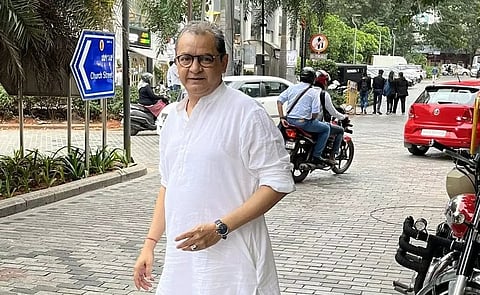
New Delhi – The Indian journalism community is mourning the loss of Sankarshan Thakur, the distinguished Editor of The Telegraph, who passed away on Monday, September 8, at the age of 63, following a prolonged illness. Thakur, a towering figure in political journalism, leaves behind a legacy of fearless reporting, incisive analysis, and literary contributions that have profoundly shaped the media landscape in India.
Born in Patna, Bihar, in 1962, Sankarshan Thakur was the son of veteran journalist Janardhan Thakur. He completed his schooling at St. Xavier’s in Patna and Delhi, later earning a Bachelor’s degree in Political Science from Hindu College, Delhi University, in 1983. Thakur’s journalistic journey began in 1984 with Sunday magazine, part of the Ananda Bazar Patrika group. Over nearly four decades, he held significant editorial roles at The Telegraph, The Indian Express, and Tehelka, where he served as Executive Editor during its launch in 2004. He returned to The Telegraph in 2009 as Roving Editor and was appointed Editor in 2023, succeeding R. Rajagopal.
Thakur’s career was marked by his commitment to ground reporting, covering some of India’s most pivotal events. His dispatches from the Kargil War in 1999, the Bhopal Gas Tragedy, the 1984 anti-Sikh riots, Indira Gandhi’s assassination, the Sri Lankan civil war, and the Maldives coup earned him widespread respect. His deep engagement with the socio-political complexities of Bihar, Kashmir, and Pakistan established him as a chronicler of India’s volatile regions. His weekly column, Lazy Eye, was celebrated for its sharp wit and penetrating insight, making it a must-read for those seeking to understand contemporary India.
A gifted author, Thakur penned several seminal works that brought Bihar’s political landscape to the national stage. His books include Subaltern Saheb: Bihar and the Making of Laloo Yadav, Single Man: The Life and Times of Nitish Kumar, and The Brothers Bihari, a dual biography of Lalu Prasad Yadav and Nitish Kumar. He also published monographs on the Kargil War, caste honour killings in Uttar Pradesh, and Pakistan. His writings combined intellectual rigour with narrative flair, offering nuanced perspectives on India’s political evolution.
Thakur’s contributions to journalism and literature were recognized with prestigious accolades, including the Prem Bhatia Award for excellence in political journalism in 2001 and the Appan Menon Fellowship in 2003 for his work on a book about Kashmir.
The Editors Guild of India expressed profound grief at Thakur’s passing, describing him as a “formidable” and “legendary” figure whose writings and professional craft would continue to inspire younger journalists. “Mr. Thakur’s passing is a profound loss to Indian journalism. The Editors Guild, however, believes that his writings and professional craft will continue to resonate, serving as enduring benchmarks for younger journalists to emulate,” the Guild stated.
The Press Club of India echoed this sentiment, noting, “We’ve lost a fearless voice in journalism. His sharp political analysis and unwavering commitment to the truth will be deeply missed.”
Political leaders and journalists alike paid heartfelt tributes. Congress President Mallikarjun Kharge highlighted Thakur’s “sharp reporting, bold political commentary, and elegant writing style,” calling his legacy enduring. Congress communication chief Jairam Ramesh described him as a “delightfully brilliant writer” and a defender of “liberal, democratic, secular, and pluralistic India.”
Jammu and Kashmir Chief Minister Omar Abdullah shared a personal reflection, stating, “He was one of the few of his profession who made an effort to travel extensively around J&K and while traveling he actually listened, he didn’t judge. May his soul rest in peace.” Telangana Chief Minister A. Revanth Reddy called Thakur’s demise a “significant loss to the field of journalism,” while Congress spokesperson Supriya Shrinate praised him as a “brilliant writer with a sharp understanding of Indian politics.”
Journalist Saba Naqvi recalled meeting Thakur during the 2024 general election campaign in Varanasi, noting his dedication to fieldwork despite his failing health. “He wrote beautifully but was such a superb ground reporter,” she wrote. Independent journalist Mandeep Punia described Thakur as “among the first in the league of editors with a spine in India,” while RJD MP Manoj Kumar Jha called him a “quiet lamp” whose “glow will not fade” for his rare integrity in walking the line between reportage and resistance.
Suhasini Haider of The Hindu described him as “an intrepid journalist, a brilliant writer, with just the right mix of hope and cynicism.”
You can also join our WhatsApp group to get premium and selected news of The Mooknayak on WhatsApp. Click here to join the WhatsApp group.